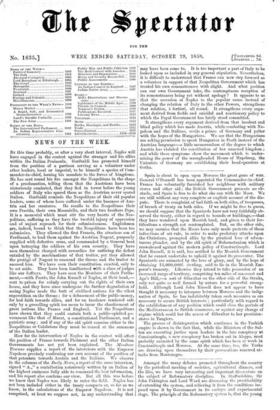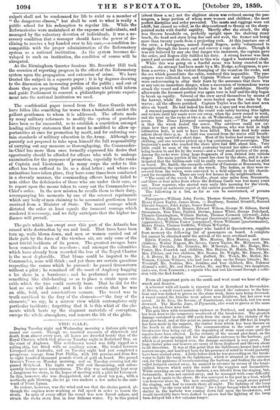Amongst the many debates promoted throughout the country by the
periodical meeting of societies, agricultural dinners, and the like, we have very interesting and important discussions on the subject of Reformatory discipline. In Staffordshire, Sir John Pakington and Lord Ward are discussing the practicability of extending the system, and relieving it from the conditions im- posed upon it by Government in its embryo and experimental stage. The principle of the Reformatory system is, that the young culprit shall not be condemned for life to exist as a member of " the dangerous classes," but shall be sent to what is really a public school for his redemption to regular life. While the Reformatories were maintained at the expense of individuals, and managed by the voluntary devotion of individuals, it was a ne- cessary condition that a manager should have the power of de- clining to receive a boy handed over to his care,—a condition in- compatible with the proper administration of the Reformatory system as a national institution. As the system becomes de- veloped to such an institution, the condition of course will be abrogated.
At the Birmingham Quarter Sessions Mr. Recorder Hill took the occasion of reporting progress in the effect of the Reformatory system upon the propagation and extension of crime. We have treated the subject in a separate paper ; it is by degrees drawing to the discussion an increasing portion of the public ; and out of doors they are preparing that public opinion which will inform and guide Parliament to convert a philanthropic private experi- ment into the national institution we need.



























 Previous page
Previous page